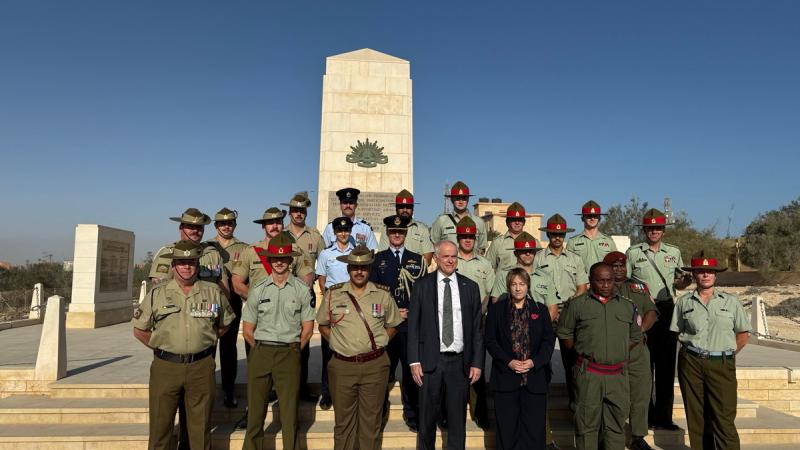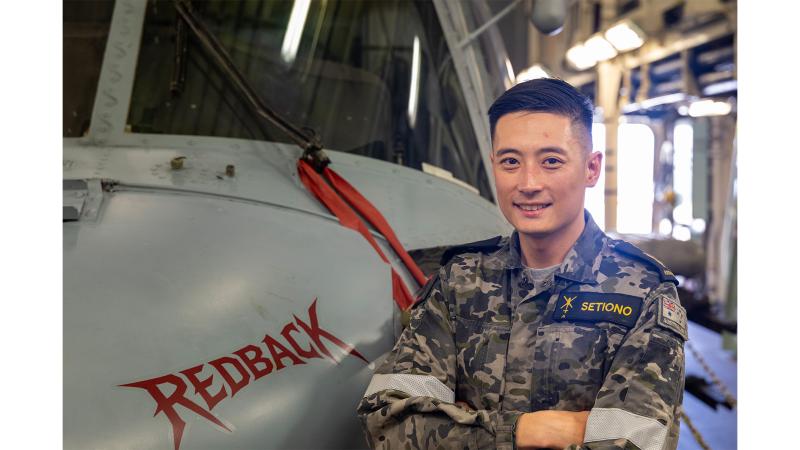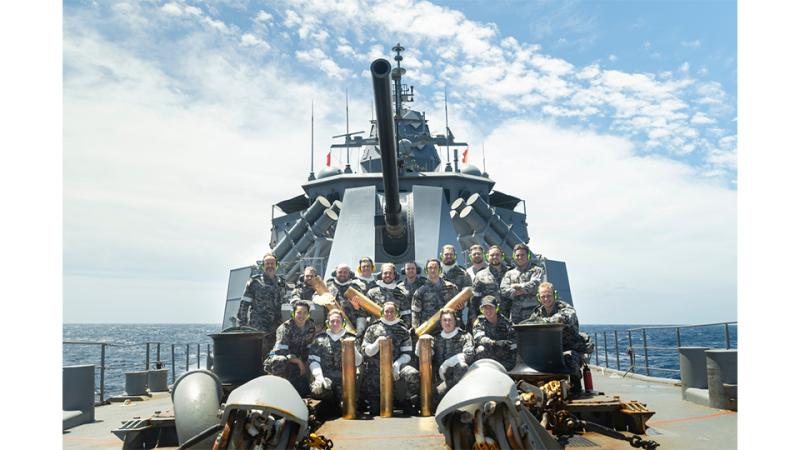24 July 2025
“Australian Navy! Australian Navy!”
If someone hears those words shouted with authority while a Royal Australian Navy (RAN) boarding party climbs on to their vessel, they’d better hope they aren’t harbouring contraband, as security units like these are serious business.
In the calm waters of Darwin Harbour, the RAN, Australian Army and United States Coast Guard (USCG) conducted an exercise – but in a real-world scenario, port security units are trained, ready and vital for coastal defence.
Lieutenant Junior Grade (LTJG) Milena Canete, of Port Security Unit 307 USCG, explained the training simulation as part of Exercise Talisman Sabre.
“For this exercise we’re here to demonstrate our capabilities and provide security for the port of Darwin,” LTJG Canete said.
“We saw a vessel coming through into the security zone and we responded. This is what we’re trained to do.”
After assessing the situation, the USCG requested support from a RAN boarding team, which subsequently conducted a boarding operation, interviewed personnel on board and ultimately apprehended their targets, which were harbouring intel on a drone strike and other intelligence.
Within the tactical operation centre (TOC), the two navies and an Australian Army liaison officer collaborated to ensure mission success.
Observing nearby from the safety boat was Australian Army Commander 2nd Division Major General Matt Burr, Commanding Officer USCG Port Security Unit 307 Commander Faith Gamboa, and Commanding Officer HMAS Coonawarra Captain David Shirvington.
“It was great to see a demonstration of true interoperability between the ADF and the US Coast Guard out on the water,” Captain Shirvington said.
“Within the exercise, the teams were integrated, fast and efficient and quickly apprehended the [role-player] enemy combatants who were harbouring information vital to the security of Darwin.”
'These exercises build trust, competence and strong strategic partnerships.'
Boarding operations may not make headlines every day, but they are one of the most direct ways the ADF keeps critical sea-lanes secure.
“The real strength lies in their professionalism and teamwork,” Captain Shirvington said.
“Whether it’s clearing a vessel at sea or demonstrating skills with our international partners, these exercises build trust, competence and strong strategic partnerships.”
Also observing the serial was the Advanced Naval Capabilities Unit of the Royal Canadian Navy (RCN).
RCN officer Lieutenant Commander Sean Kelly said they had personnel in the tactical operations centre and on board the target and boarding party vessels.
“We were happy to be able to watch teams from the RAN and USCG Port Security Unit work together to conduct successful boarding operations,” Lieutenant Commander Kelly said.
“We’ll be looking at ways to be involved in future exercises with our own boarding, harbour defence and uncrewed systems capabilities.”
Back onshore, post-exercise, LTJG Canete said she was enjoying being part of Exercise Talisman Sabre in the Northern Territory.
“It’s been a real pleasure so far working and collaborating with the Australians and also getting to know Darwin,” LTJG Canete said.


